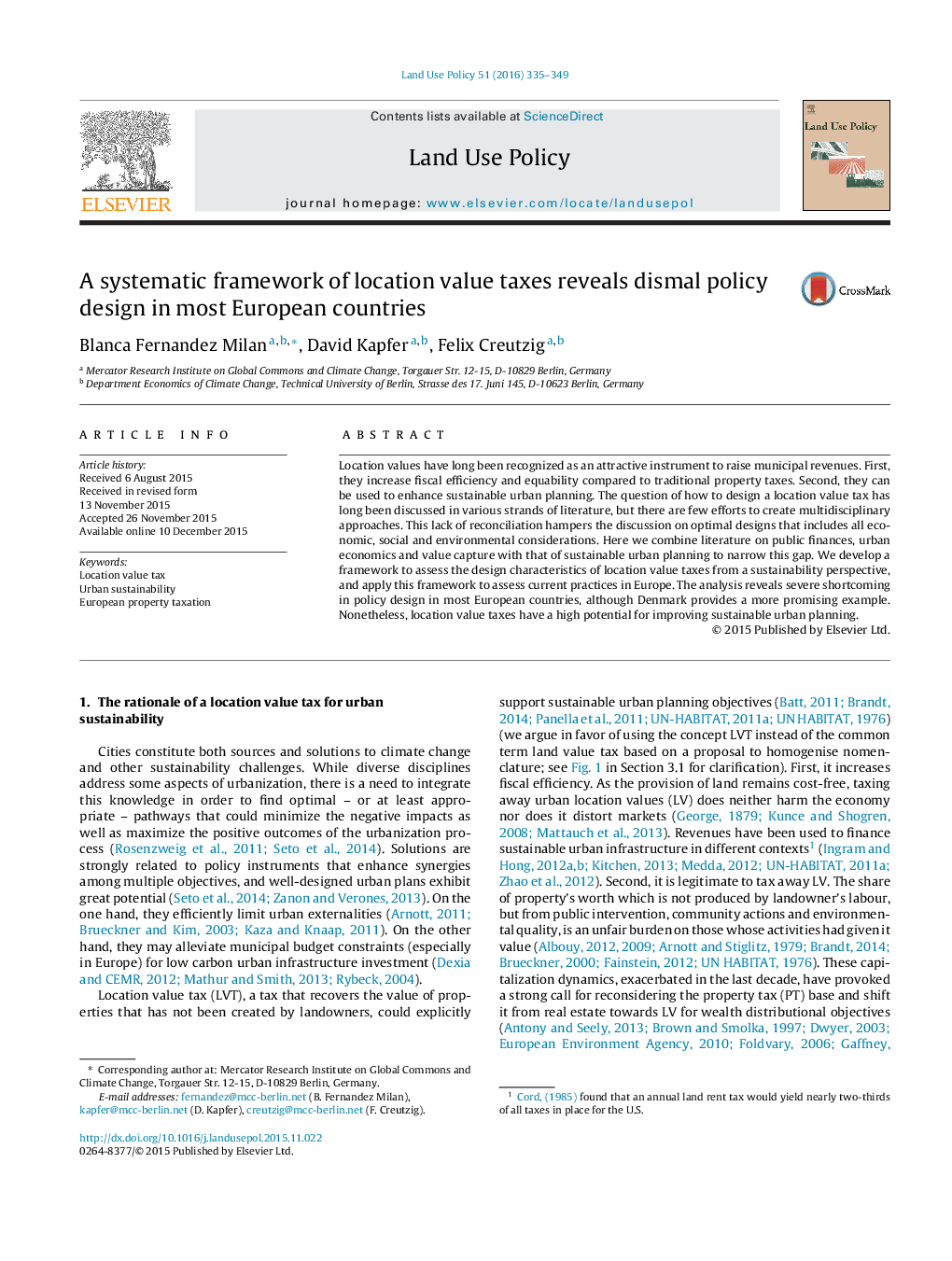| Article ID | Journal | Published Year | Pages | File Type |
|---|---|---|---|---|
| 92919 | Land Use Policy | 2016 | 15 Pages |
•Location value taxes have a high potential for improving sustainable urban planning.•Policy design characteristics are essential for sustainability outcomes.•European countries present severe shortcomings in location value taxes policy designs.
Location values have long been recognized as an attractive instrument to raise municipal revenues. First, they increase fiscal efficiency and equability compared to traditional property taxes. Second, they can be used to enhance sustainable urban planning. The question of how to design a location value tax has long been discussed in various strands of literature, but there are few efforts to create multidisciplinary approaches. This lack of reconciliation hampers the discussion on optimal designs that includes all economic, social and environmental considerations. Here we combine literature on public finances, urban economics and value capture with that of sustainable urban planning to narrow this gap. We develop a framework to assess the design characteristics of location value taxes from a sustainability perspective, and apply this framework to assess current practices in Europe. The analysis reveals severe shortcoming in policy design in most European countries, although Denmark provides a more promising example. Nonetheless, location value taxes have a high potential for improving sustainable urban planning.
